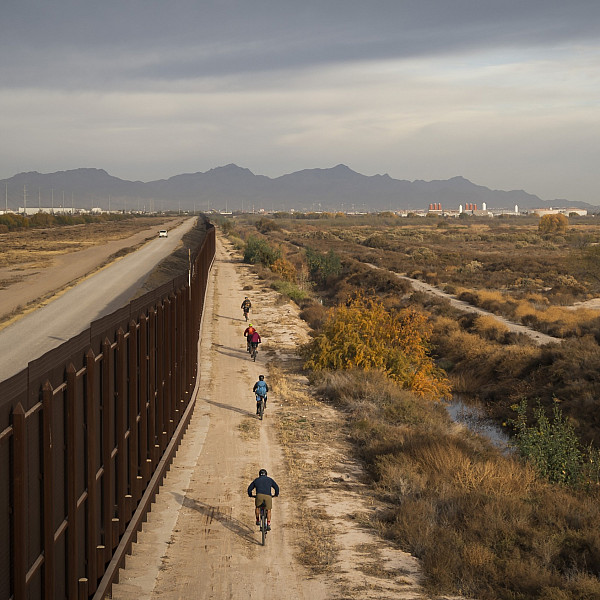News
The River and The Wall: A Wide Lens on Our Southern Border
November 01, 2019
November 01, 2019
Open gallery

Mariscal Canyon in Big Bend National Park, where the Wild & Scenic designation of the Rio Grande in Texas begins.
Event Description
Southwestern University will host a screening of The River and the Wall, a documentary taking a multidisciplinary approach to the controversy surrounding the U.S.–Mexico border wall. With its environmental focus, artistic cinematography, and presentation of a diverse range of political opinions, the documentary promises to provide a space for the entire Southwestern community to come together and find common ground. After the screening, members of the documentary’s production crew and cast will engage in a rich discussion of the film and its thematic elements.
Film Description
The River and the Wall is an immersive narrative film about one group’s travels along the U.S.–Mexico border by horse, mountain bike, and canoe. It is filmed with both a political and environmental lens, attempting to dissect what the border means and how it affects both humans and wildlife surrounding it. This 1,200-mile expedition from El Paso to the Gulf of Mexico follows NatGeo Explorer Filipe DeAndrade, ornithologist Heather Mackey, river guide Austin Alvarado, and conservationist Jay Kleberg in their search to discover the immense value of the too-often-ignored environment that surrounds the border, how politics play into this, and what this change would look like in a much broader sense for the Lower Rio Grande Valley.
“This seems like the kind of thing that touches on so many different issues,” says Joshua Long, an associate professor of environmental studies at Southwestern. “Like many people here at Southwestern, I am an interdisciplinary scholar, and I like the connections that really significant issues can bring together.”
Long foresees that there will be people interested in the film for a myriad of reasons. Some will be drawn by the political aspects, including the discourse on immigration and human rights. Others will come for the significant environmental factors that are addressed. And still others may be enticed by the aesthetic value of the film. “Because of the drone footage, we have cinematic shots of Big Bend and the Lower Rio Grande Valley that we’ve never really been able to have before because we just didn’t have that technology,” Long shares, addressing his initial infatuation with the beauty of the film. Regardless of their field of interest, each person attending will be able to find some aspect to connect to. “They pull off a very neat trick of bringing in a very controversial topic and giving avenues for different people to connect and have a civil conversation about it,” Long comments. “These days, that is the best magic trick around.”
Q&A and Discussion
After the screening, Austin Alvarado (cast member), Hillary Pierce (producer), and Jay Kleberg (Texas Parks and Wildlife Foundation) will serve as Southwestern’s featured guests for an engaging Q&A. Southwestern and local community members who attend will have the opportunity to process the documentary together while also hearing from those who participated in its creation and can provide their unique insights on different parts of the film. Whether it be the production, their preparation for the journey featured in the film, or their participation in the journey, these guests promise to significantly enhance the impact of the documentary in a profound way. “We could do a film screening anytime,” says Long. “But why not bring three different people who all can speak very eloquently to their own expertise in the film? Having the Q&A session—the panel afterwards to talk about it—I think is really important.”
Event Details
Date: February 27, 2020
Time: Doors open at 5:00 p.m.; the film starts at 5:30 p.m.; the panel session starts at 8:00 p.m.
Location: Alma Thomas Theater
Panelists: Austin Alvarado (cast member), Hillary Pierce (producer), Jay Kleberg (Texas Parks and Wildlife Foundation)
Sponsor: Southwestern University Environmental Studies Program
This event is free and open to the public.
Refreshments will be provided after the screening by the Environmental Studies program.
For more information, please contact Associate Professor of Environmental Studies Joshua Long.















